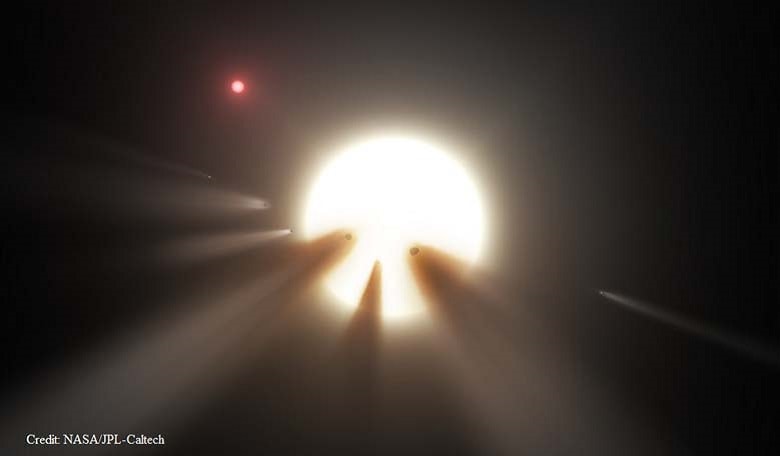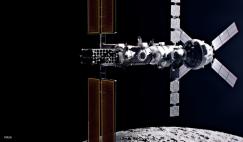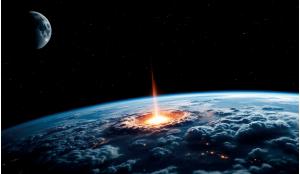Star KIC 8462852 has been of a particular interest to astronomers for a number of years. The star, which lies roughly 1500 light-years from Earth, dipped in brightness by 22% in 2011 and 2013. Such a dip in brightness became a great puzzle for scientists, who proposed many theories for the change, ranging from a huge asteroid collision to a cloud of broken-apart comets. But perhaps the wildest theory about KIC 8462852 is that it is home to a gigantic energy-collecting structure created by an alien civilization. While unlikely, this hypothesis is still been under consideration by many astronomers.
Now, a team of astronomers led by Massimo Marengo of Iowa State University has decided to take a closer look at the mysterious star. They studied observations made in January 2015 by NASA's Spitzer Space Telescope, which is optimized for observation in infrared wavelengths.
Simply put, when dust warms up, it emits infrared light, so an infrared signal coming from KIC 8462852 would points to quite a lot of dust. But no such signal was observed by the telescope.
"The lack of strong infrared excess 2 years after the events responsible for the unusual light curve observed by Kepler further disfavors the scenarios involving a catastrophic collision in a KIC 8462852 asteroid belt, a giant impact disrupting a planet in the system or a population of dust-enshrouded planetesimals," Marengo and his colleagues wrote in the new study, which was published this month in The Astrophysical Journal Letters.
The scientists hypothesize that a family of comets on a long elliptical orbit may have caused the drops in brightness. These comets may have blocked light from the star in both 2011 and 2013 before moving into deep space. When Spitzer was subsequently used in January 2015, the comets were long gone.
However, the astronomers are not quite able to dismiss the alien-megastructure theory.
"We didn’t look for that," Marengo said in a statement. "We can’t really say it is, or is not. But what the star is doing is very strange. It’s interesting when you have phenomena like that — typically it means there’s some new physical explanation or a new concept to be discovered."
It would seem that for now, KIC 8462852 is keeping its secrets and continues to provide us with more questions than answers.











